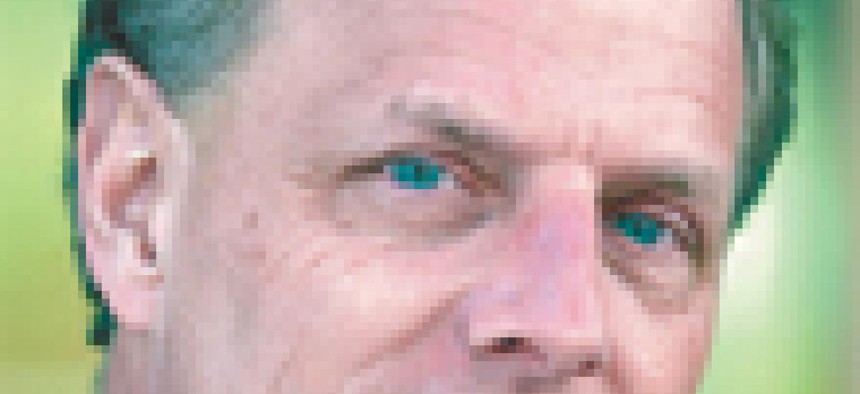Eye on the States: Three firms show how to survive a slow market

State and local government, once a hot market, is now a story of slower growth and tighter information technology budgets.
State and local government, once a hot market, is now a story of slower growth and tighter information technology budgets. But in the economic downturn, three companies have survived by renewing their focus on core businesses and by keeping their fingers on the pulse of their government buyers: NIC Inc., EzGov Inc. and SCT Corp. Each has state and local governments, including higher education, as primary customers. They range in size from about $30 million to $250 million in annual revenue. NIC and SCT are public companies, and all have taken steps, sometimes dramatic, to survive the difficulty of the past few years. SCT of Malvern, Pa., for example, just completed a two-year transformation, shedding its business in the energy, utilities and local government markets and focusing exclusively on providing software and services to higher education. Under the leadership of Chief Executive Officer Mike Chamberlain, SCT acquired three technology companies that have further positioned it as the leader in comprehensive e-education technology solutions, specifically for higher education. EzGov of Atlanta is focusing on its core business, being the preferred software platform for developing e-government solutions. With good foresight and timing, EzGov, under founder and CEO Ed Trimble, took steps a few years ago to shore up the company's vulnerabilities. EzGov established key strategic business relationships with several top integrators, such as Electronic Data Systems Corp., that have enabled the company to expand into new geographic markets. And NIC of Overland Park, Kan., has decided to return to the business it pioneered, developing and managing online government portal services. Jeff Frazer, who founded the company, returned to take over the CEO helm about a year ago and is now leading the company's business development efforts. Another quality these companies have in common: They share a conviction in the attractiveness of their core businesses and markets. NIC never lost faith in the "self-funding" business model it pioneered almost a decade ago; the monies for NIC contracts come from transaction fees and reselling government data. SCT never abandoned its commitment to its 1,300 higher-education customers, even with relentless competition from tough competitors such as PeopleSoft. And as EzGov has expanded into new niches of the government market, including international and federal, it stayed true to its mission of delivering to e-government customers a comprehensive, integrated software platform. Backing up their beliefs with investments, all three companies have taken steps to broaden their core solutions offerings. EzGov just announced a new release of its software platform for government. The enhanced software platform, which provides government with "out-of-the-box" support for more than 70 online applications, includes commercial components for repeatable processes, such as e-payments and e-forms. As a result of its market expansion initiatives, the European market, including customers in the United Kingdom and Italy, now accounts for more than half of its business. NIC's portal solution now supports more than 130 online applications, including professional licensing, job applications and tax filing. And SCT, with its recent acquisitions, has expanded beyond administrative software in areas such as finance and student records to include portal, content management and workflow solutions. NIC's revenue has been growing 10 percent to 15 percent annually, while SCT's contract backlog has grown to $543 million from $387 million a year ago, and its revenue continues to grow at a double-digit pace. Hunkering down is the last thing these companies would consider. They are just now hitting their stride. *Thomas Davies is senior vice president at Current Analysis Inc. in Sterling, Va. His e-mail address is tdavies@currentanalysis.com.


Thomas Davies
NEXT STORY: Online tax filing

